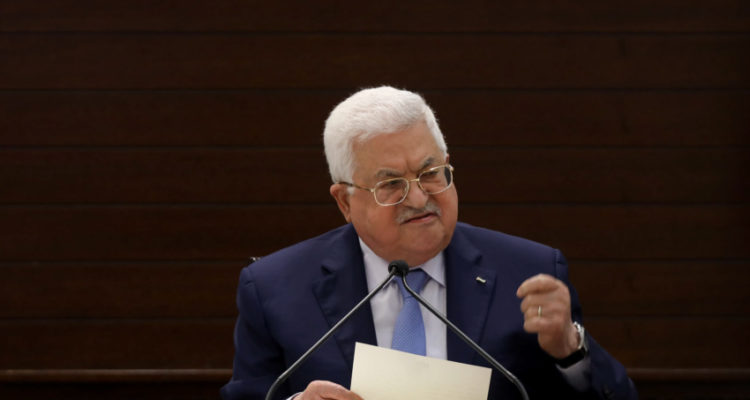The source described the Palestinians as turning to “the policy of unilateral measures despite American pressure.”
By Baruch Yedid, TPS
A senior official in the Palestinian Authority close to Palestinian Authority President Mahmoud Abbas told TPS Sunday, “We are determined to turn to the international arena, including the International Court of Justice in The Hague, to put pressure on Israel in light of the results of the recent elections and the victory of the right-wing bloc.”
The official added, “The political horizon is closed. The situation of the Palestinian Authority is very embarrassing and alarming in view of the circumstances and the coalition that is forming in Israel, and therefore we will turn to all international institutions and also to the International Court of Justice in The Hague, according to Abu Mazen’s order.”
The source described the Palestinians as turning to “the policy of unilateral measures despite American pressure.”
He said the PA will assist Nicaragua to declare at the UN that “the Israeli occupation is illegal due to being a continuous annexation as defined, and therefore it is contrary to UN resolutions and international agreements.”
But the official admits “there is American pressure against this step” and adds “it seems we are in the season of unilateral steps from both the Israeli side and the Palestinian side.”
In response to a question about what they expect from the next government of Israel, he said, “We hope that Netanyahu will not give very wide freedom of action to the right-wing elements in his government.”
“Ironically, it seems that Netanyahu is the most left-wing element in the government being formed,” he added.
Another source, this one is from of the PLO institutions, told TPS, “It seems that Abu Mazen [Mahmoud Abbas] will go very far with this step because the Palestinian Authority is in a critical situation and he has come to the conclusion that he has nothing to lose.”
“We hope that Netanyahu will see this as a warning,” added the official.
Abdullah Janid, a Bahraini commentator, referred to the statement of an adviser to the King of Bahrain who said that the relations between the countries will continue. He told TPS that despite the composition of the government being formed in Israel, in the end, only Benjamin Netanyahu’s policy will determine the attitude towards his government in the countries of the Abraham Accords.
Janid said, “Significant measures against the Palestinians or against the Arabs of Israel, such as those announced by [right-wing Israeli politician] Itamar Ben-Gvir recently, could lead to damage to relations between Gulf countries and Israel.”
But he expressed confidence that “Netanyahu’s extensive political experience will lead him to set significant boundaries for Ben-Gvir and the other partners in the coalition.
“Netanyahu is an extremely smart politician, I think he is a brave national leader and must now make difficult decisions.”
“We hope that he (Netanyahu) will not violate the agreement signed with Lebanon. The Abraham Accords exist between the peoples and not between the governments,” Janid said. “We will still go through challenges (on the way). But the Abraham Accords were born to remain and not to disappear.”
However, he added a warning: “If the Israelis want to protect the benefits to them from the agreements in the region, they must follow a responsible and careful policy, and if this government takes steps or an internal or regional policy that will harm our interests, we will not be able to stand by it.”





